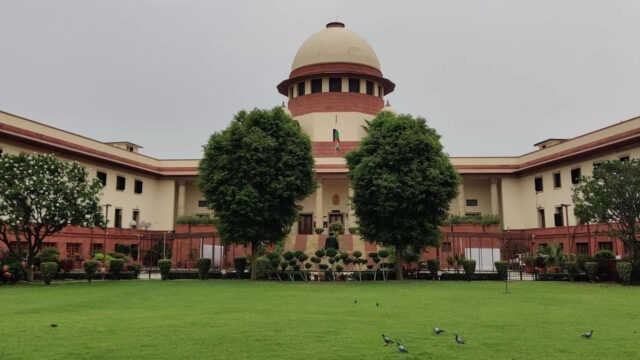
The amendment had inserted sub-clause (xviii) to Section 2(24), which defines taxable “income”.
A Bench led by Chief Justice DY Chandrachud posted the matter for further hearing on May 17.
The Maharashtra government had provided various incentives to major industries under Package Scheme of Incentives-2013 for a period of five years. The benefits included stamp duty concessions, exemption from electricity duty and subsidy on value added tax, central sales tax and state goods and services.
Challenging the Bombay High Court’s judgment that dismissed its 2021 petition, senior counsel Arvind Datar told the SC that all sorts of subsidies, whether capital or revenue in nature, have been brought within the ambit of term income and made taxable, even though the apex court had held capital subsidy as non-taxable.
SII said that the government’s amendment seeks to tax a capital receipt as “income” which is constitutionally impermissible.Datar asserted that the inclusion of subsidies and other things in the definition of income has unintended retrospective application, since at the time of introduction of the scheme by the Maharashtra government, the same was not there in the tax law.Having qualified as ultra mega project under the state scheme, SII had made capital investment of more than Rs 1500 crore. The company’s operative period for availing the deductions was from January 1, 2015 to March 31, 2045. Post approval by the state government, SII claimed that it was entitled to total benefits of 75% of the eligible investment.
However, the Income Tax Act was amended in 2015 and sub-clause (xviii) to Section 2(24) was inserted by the Finance Act, 2015 with effect from April 1, 2016. The sub-clause, however, excluded subsidies, grants or reimbursements which were taken into account to determine the actual cost of an asset in terms of Explanation 10 to clause (1) to Section 43. This reduced the actual cost and, thereby reduced the quantum of depreciation.
SII’s case is that waiver or concessions were not excluded under Section 43, that are granted either by the Central government or by the state governments. Therefore, not only will the refund of sales tax be liable to tax as income, but even the electricity duty exemption and the 50% exemption from payment of stamp duty were also to be treated as income.
This amendment was challenged by SII in the Bombay High Court, which on December 4 rejected its challenge, holding that the amendment was a perfect example of a legislative endeavour to align the definition of “income” with the evolving economic landscapes and judicial precedent of it being an inclusive and elastic term.

































